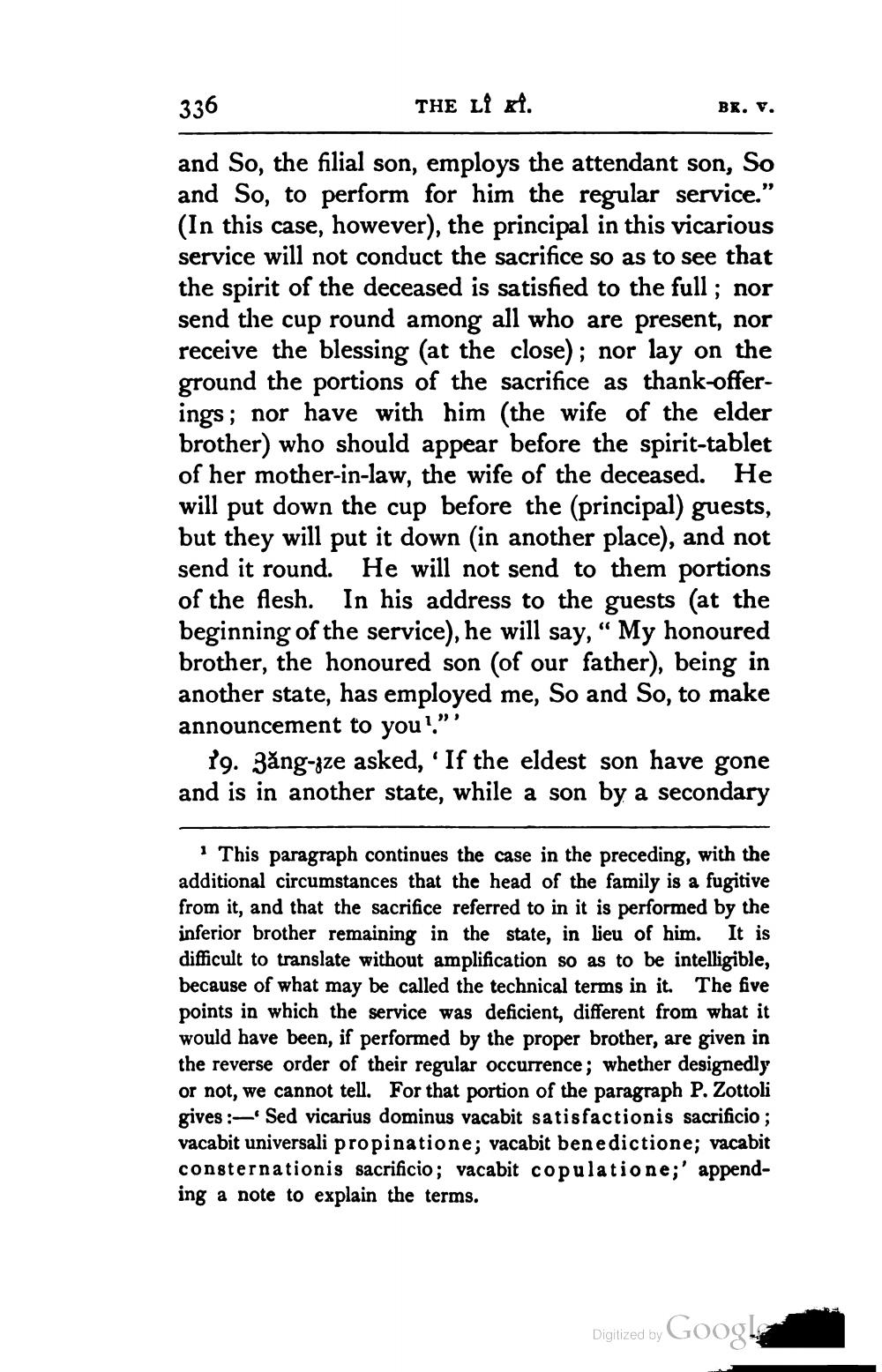________________
336
THE LI Kİ.
and So, the filial son, employs the attendant son, So and So, to perform for him the regular service." (In this case, however), the principal in this vicarious service will not conduct the sacrifice so as to see that the spirit of the deceased is satisfied to the full; nor send the cup round among all who are present, nor receive the blessing (at the close); nor lay on the ground the portions of the sacrifice as thank-offerings; nor have with him (the wife of the elder brother) who should appear before the spirit-tablet of her mother-in-law, the wife of the deceased. He will put down the cup before the (principal) guests, but they will put it down (in another place), and not send it round. He will not send to them portions of the flesh. In his address to the guests (at the beginning of the service), he will say, "My honoured brother, the honoured son (of our father), being in another state, has employed me, So and So, to make announcement to you1."'
BK. V.
19. 3ăng-ze asked, 'If the eldest son have gone and is in another state, while a son by a secondary
1 This paragraph continues the case in the preceding, with the additional circumstances that the head of the family is a fugitive from it, and that the sacrifice referred to in it is performed by the inferior brother remaining in the state, in lieu of him. It is difficult to translate without amplification so as to be intelligible, because of what may be called the technical terms in it. The five points in which the service was deficient, different from what it would have been, if performed by the proper brother, are given in the reverse order of their regular occurrence; whether designedly or not, we cannot tell. For that portion of the paragraph P. Zottoli gives: Sed vicarius dominus vacabit satisfactionis sacrificio; vacabit universali propinatione; vacabit benedictione; vacabit consternationis sacrificio; vacabit copulatione;' appending a note to explain the terms.
Digitized by Google




